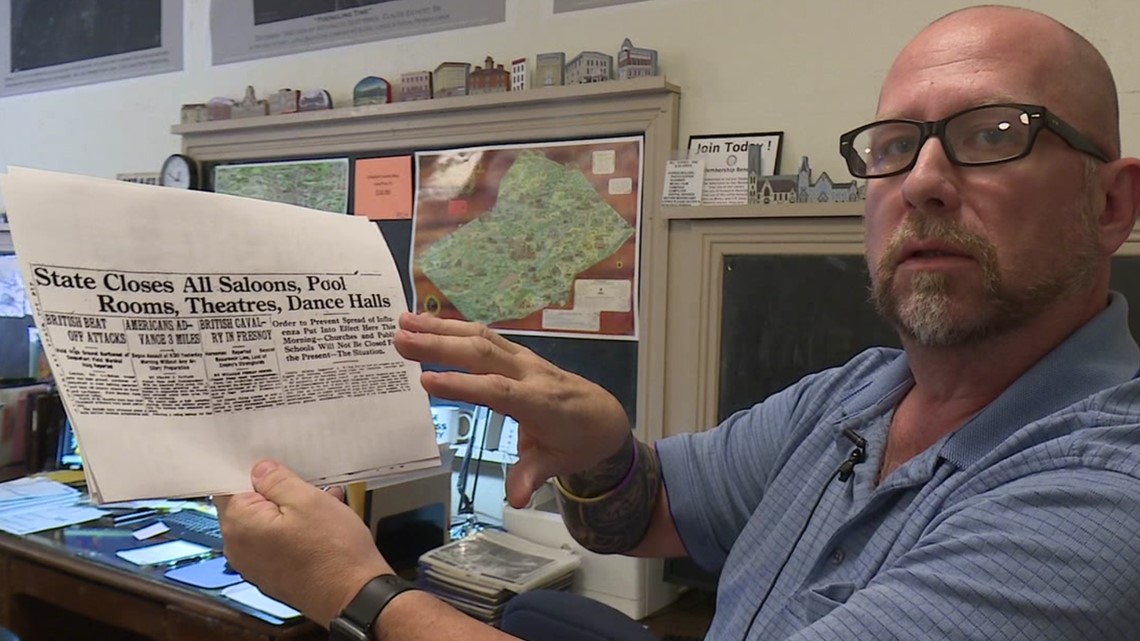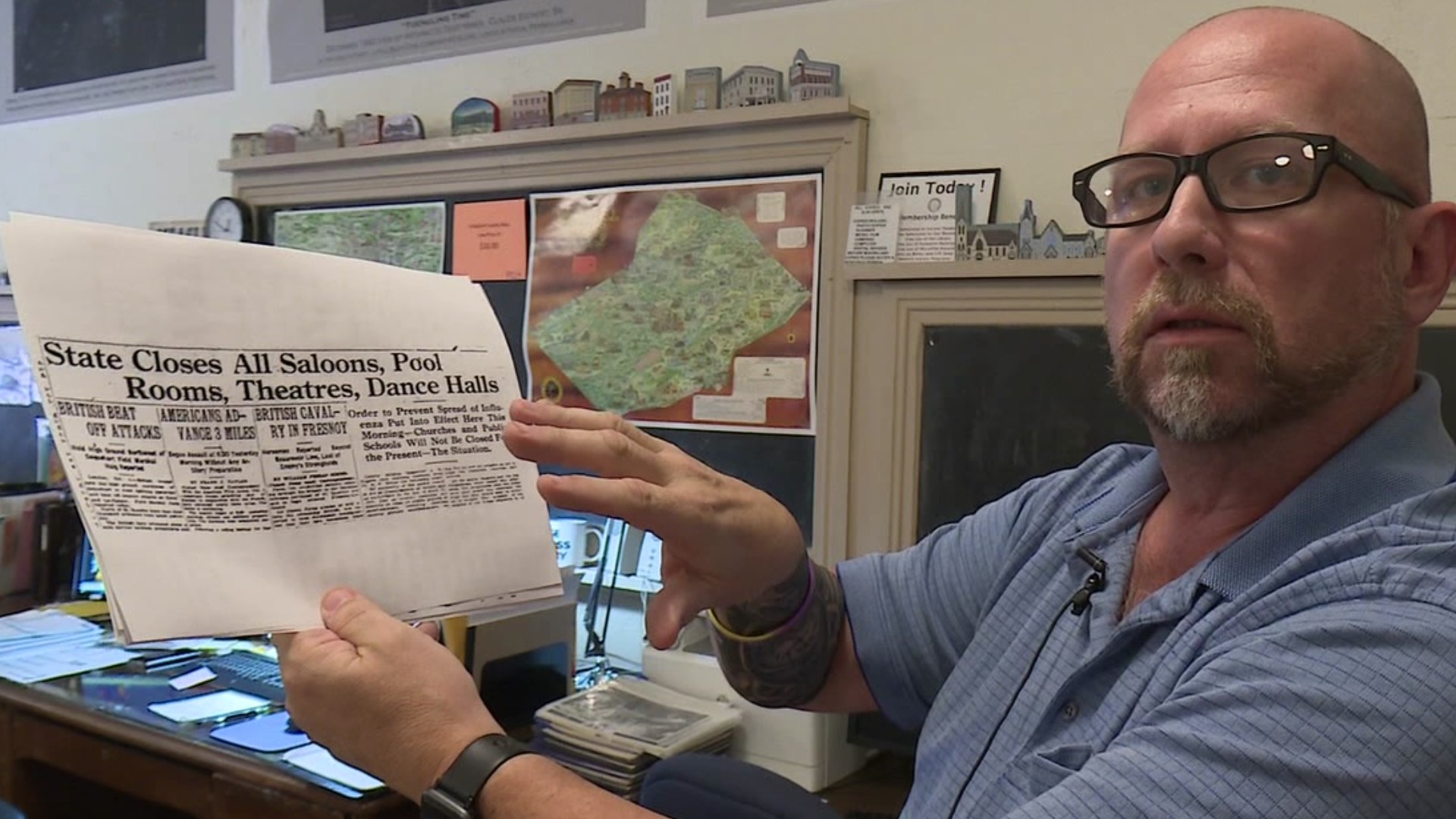POTTSVILLE, Pa. — If it weren't for words like 'saloons' or 'pool halls,' some of the newspaper headlines from 1918 could be mistaken for today.


The Schuylkill County Historical Society has a trove of old articles from that year detailing the pandemic that killed 1600 people in a single month in this county.
"It was one of those epidemics that hit so fast, and no one knew what to do with it," said Steven Young, Assistant Director at the Schuylkill Co. Historical Society.
Just like in 2020, the state ordered businesses to close.
"In fact, they had to shut down the jail because the influenza started to get so severe," said Young.
And just like in 2021, there was a shortage of nurses in the hospitals.
"The volunteers that they were getting weren't enough."
This week, the U.S. officially surpassed the estimated death toll from the 1918 pandemic.
"I did not honestly think we would even come close to it," said Diana Prosymchak, Executive Director at the Schuylkill Co. Historical Society.
But the pandemic that claimed about 675,000 American lives more than a century ago may still be considered deadlier than the one we're currently living through.
The population back then was much smaller, and people did not have as many opportunities to travel and spread the virus as we do now.
"In 1918, they knew where these people traveled because they were in their own hometowns. And it still spread like wildfire," said Prosymchak.
"It's actually kind of amazing because they really didn't use a lot of medicine to deal with that pandemic. They used common sense," said Young.
They did, however, get a vaccine. But just like today:
"People were a little leery on taking this because they didn't really believe it would actually work," Young said.
Folks at the historical society hope that 100 years from now, people look back and learn from how we handled the COVID-19 pandemic.
"1918 was our history. We should've learned from their mistakes. And hopefully, if this should happen in the future, as we document COVID now, we're making history again, and hopefully, we learn from history," said Prosymchak.

